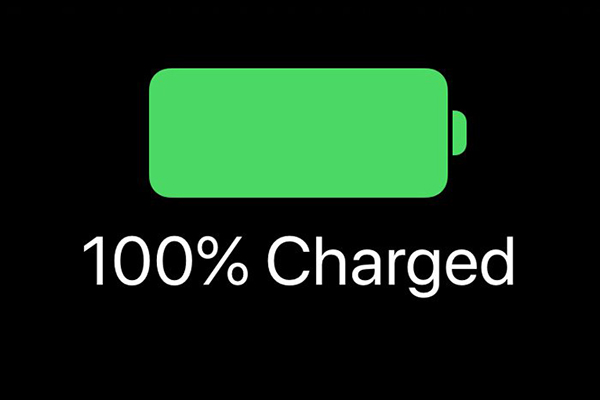How to charge the phone battery properly
Why are phone batteries getting worse and worse? Initially, the battery can last for a whole day, even until bedtime and still exists, but over time, you find yourself how to use up to half a day already has to be charged.
This is partly due to the way you use your phone, installed applications, junk files during use, and customizations, settings, and notifications received over a period of time will cause the phone's battery to degrade.
When to charge the phone?
The golden rule of thumb is to keep your phone's battery between 30% and 90%. So, charge the battery when the phone drops below 50% and then unplug it before it reaches 100%. For this reason, you probably shouldn't charge your phone overnight anymore.
Fully charging your phone is not a way to protect the battery; it even has the opposite effect, reducing the life of your phone's battery.
And vice versa, avoid letting your phone's battery go below 20%.
Should I charge my phone to 100%?
Of course not, we mentioned it above, or at least not every time the battery is fully charged. Some people suggest that you should charge the battery from 0 to 100% about 1-2 times / month to recalibrate the battery, such as restarting the computer.

But others believe that this is not necessarily a good practice for the lithium-ion batteries on today's phones.
To keep the battery going for a long time, charge it in small increments, not fully charge.
Should the phone battery be charged overnight?
It is best to avoid, although starting the day with a long phone battery is always a habit of most users today. Each full charge will be a 'cycle' and your phone will only be used when it reaches a certain number of cycles.

Although most smartphones these days have sensors that automatically turn off charging when fully integrated in the machine, but it will still turn on when a small amount of battery is wasted when the device is not in use.
The best way is to turn on do not disturb or airplane mode. Or, you can turn off the phone completely, but should only be used in case you don't need an alarm or have to wait for important calls.
Some devices are set to power on automatically when plugged in by default. It is best to unplug the charger before reaching 100% or at least unplug the charger as soon as the device is full, don't leave it for too long.
When charging for a long time, remember to remove the phone case to prevent overheating.
Does fast charging affect the battery?
Most smartphones these days come with fast charging support, but you should buy the right accessories. The current standard is Qualcomm's Quick Charge 18W.
However, many phone manufacturers have their own fast charging standards, which can provide even faster speeds by tweaking the power management code to require higher voltage charges. Samsung is now selling 45W chargers!
While fast charging itself won't harm the phone's battery, which is designed to support it, the heat radiated will likely affect the battery's lifespan. So you have to balance the advantages of faster charging with convenience before you get out the door.
Likewise, cell phone batteries do not like heat, nor do they like cold. Therefore, you should avoid leaving your phone in a hot car, in the trunk, on the beach, by the oven, in the snow. Normally, the battery operates at its optimum level between 20 and 30 degrees Celsius.
Can any charger be used?
If possible, use the charger that came with the phone, as it is certainly correct. Or make sure that a third-party charger is approved by your phone manufacturer. Low-cost alternatives can hurt your phone and battery bursts because cheap charging is not uncommon.
Battery memory effect: Truth or fiction?
The battery memory effect is related to a battery that is frequently charged between 20% and 80% and suggests that the phone can somehow 'forget' the 40% excess that you frequently ignore.
Lithium batteries, found in the majority of modern smartphones, have no effect on battery memory, although older nickel-based (NiMH and NiCd) batteries do.
Avoid using and charging
If you charge your phone while it is in use - while watching a video, for example - you can confuse the battery by inducing small cycles in which parts of the battery are constantly spinning and damaged. at a faster rate than the rest of the battery.
Ideally, you should turn off your device while it's charging. More specifically just leave it inactive while charging.
Tips for battery storage
Don't leave the lithium battery on 0% for too long - if you don't use it for a while, leave it to a charge of about 50%.
You will see the battery drain between 5% and 10% per month and if you let the battery fully discharge, it may no longer be able to charge. That's probably why the battery life of an old phone deteriorates so much after a few months in the drawer, even when it's not being used.
You should read it
- ★ Causes and ways to fix battery bottles on smartphones
- ★ Don't, and exactly, never leave your phone down to 0% battery!
- ★ 10 cases of charging the wrong way causing the battery of your devices bottle away quickly
- ★ How to recover and improve performance for battery-powered laptop batteries
- ★ Why is the fully charged phone still running out of battery?